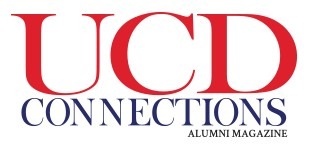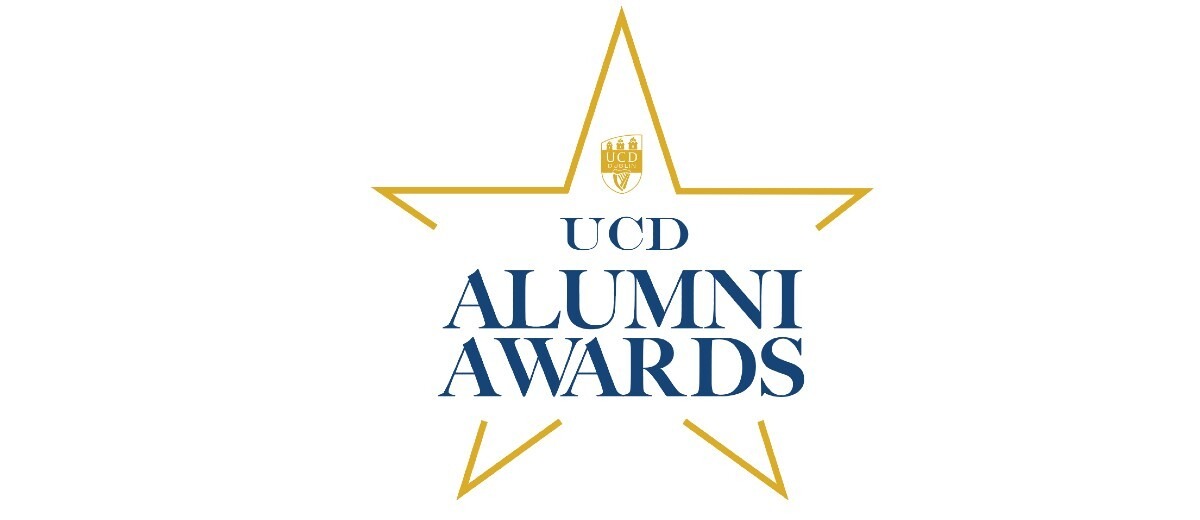THE UCD ALUMNI NETWORK is influential, successful and vibrant – and with nearly 300,000 former students based in 169 countries around the world – it is truly international. Our graduates are the standard bearers of the University’s reputation and it is largely because of them that the value of every UCD degree continues to be enhanced. The successes of our alumni reinforce our position as Ireland’s leading global University and their loyal involvement continues to shape UCD’s future. Their passionate, ongoing support is invaluable.
The UCD Alumni Awards were created in 2014 to acknowledge that support and to honour outstanding achievements by our former students in a wide variety of fields. With the global pandemic of 2020 changing life as we know it, we feel it is more important than ever to celebrate their remarkable accomplishments. As students, our alumni made lifelong connections with classmates and with this institution. The UCD Alumni Awards celebrate this connection. Let us introduce you to the nine worthy recipients for 2020…
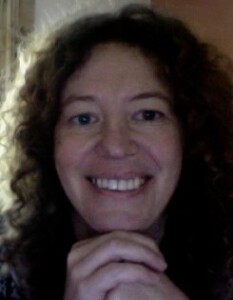
Delia Grace Randolph 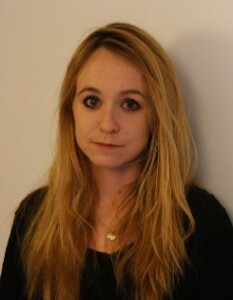
Sally Hayden 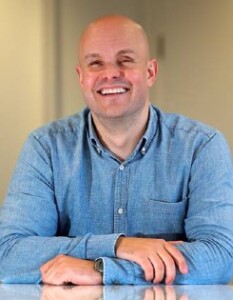
Mark Pollock 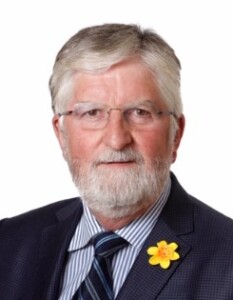
Cormac Kilty 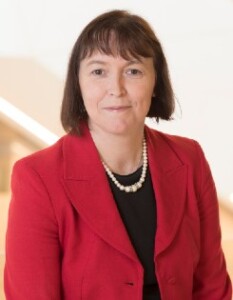
Sharon Donnery
Delia Grace Randolph, Mvb 1990
Epidemiologist & Food Safety Expert
UCD Alumni Award – Health and Agricultural Sciences. Delia is Professor of Food Safety at the University of Greenwich. A veterinary epidemiologist and food safety expert, Delia’s work focuses on using a One Health lens to creatively examine how veterinary research can enhance connections for ecosystems, animal health and human health. What do you remember most from your student days at UCD? “Most of it was spent at the veterinary college, which was then located in Ballsbridge in a lovely 19th-century building. There were 56 in my class, so it felt like a big family. I had come to Dublin from Ballycastle [Co Antrim] and it was such a big culture shock. But I loved it.” What life-skills did you acquire at UCD? “I joined the debating society and that really brought me on as a person. UCD helped me mix and mingle and made me curious about the world. And I’ve never lost that.”Are there career highlights you’re especially proud of? “My first five years were spent in England – mainly in large animal practices – but much as I loved it there I knew I wanted to try other things, so I did something completely different and volunteered in Bangladesh for $90 a month and I stayed there for three years.” What motivates you today? “I know this might sound a little Pollyanna-ish, but trying to make things better is a great motivation. In Africa, you see a lot of avoidable illness and poverty and, yet, transformation is possible.” Do you have advice for graduates? “I know the pandemic has made everything very uncertain now, but I would say to graduates to embrace change. People might think that because they have trained to be an accountant, they have to become an accountant, but that need not be the case: discover what makes you happy.”
Sally Hayden, Bcl 2012
War Journalist, Photographer
UCD Alumni Award – Law. Sally is an award-winning journalist and photographer focused on migration, conflict and humanitarian crises. Her work has been published in the New York Times, The Guardian, Time and CNN. She has previously lectured at London College of Communication and New York University. What are your fondest memories of UCD? “Being a student ambassador, giving tours and encouraging secondary students to come to UCD – especially rewarding when they were set to be the first in their family to attend.” What key life skill did you pick up at UCD? “I loved meeting a wide range of people, in class, when playing with the orchestra and travelling for debating. I wrote for the University Observer. In my third year, I went on exchange to UNSW in Sydney. That taught me a lot about arriving in a place where you know no one and building something of a life.” What career achievements are you most proud of? “It’s hard to say I’m proud of anything – I always think of the people in desperate situations who I’ve interviewed – it’s rare anything changes for them even after a report comes out. However, I still believe in the value of journalism and my reporting has been used in legal challenges against governments and referenced by the US State Department and at the European Parliament.” Would you change any aspect of your career? “Journalism is in crisis – pay is low and it’s difficult to fund reporting. If journalism isn’t funded, wrongdoing goes unexposed.” Advice for today’s graduates? “Work hard. Be humble. Keep learning. Don’t be too proud to start from the bottom. Follow your passions instead of money. Give back. Amplify the voices of those who are overlooked.”
Mark Pollock, Mbs 2003
Athlete, Explorer, Speaker
UCD Alumni Award – Business. Mark is an explorer, motivational speaker and author who became the first blind man to race to the South Pole. He lost his sight in his early 20s and was paralysed after a fall in 2010. Now, working to help cure paralysis, he is the founder of the global race, Run in the Dark. Tell us a little about your time at UCD? “I completed a part-time masters in Business Studies at Smurfit Business School in 2002. I found my life experience was applicable to my studies, with personal experience and debate key components of the process.” What life skills did you pick up at University? “Creativity is the most critical skill we need in life, a way of thinking about the world. I have applied it to challenges I’ve taken on, from putting together expedition teams to race in deserts, mountains and the poles to building businesses and catalysing collaborations in science, technology and investments.” What career achievements are you most proud of? “The ability to adapt. After going blind in 1998 and becoming paralysed in 2010, I’ve had to reinvent myself twice. When I went blind, I created a speaking business based on my experiences as an adventure athlete. Now I’m paralysed, I’m bringing people together to solve the complex problem of curing paralysis in our lifetime.” Would you change any aspect of your career if you could? “Everything I do is about helping people build resilience and collaborate with others so they achieve more than they thought possible – it’s what motivates me to get up in the morning.” Advice for today’s graduates? “Sometimes we choose our challenges. Sometimes our challenges choose us. What we decide to do next is what counts.”
Cormac Kilty, Bsc 1975, Phd 1985
Biotech Entrepreneur
UCD Alumni Award – Science. Cormac is a biotech entrepreneur and manages a biotech investment portfolio. He is involved with two angel investment groups in Ireland. The founder of Biotrin, a virology diagnostics company, and Argutus Medical, he is Adjunct Associate Professor of Medicine and Medicinal Chemistry at UCD. How do you remember your student years? “I really enjoyed the social and sports side and I played a lot of hockey – I still have a lot of friends from that time. I was very interested in science and learned so much in my zoology degree; and biochemistry helped lay the groundwork for my business career.” What life and career skills did you acquire at UCD? “I developed organisational skills running the Science Ball for a number of years and the Biological Society in 1975, then the biggest society at UCD. I also became more and more curious. Both curiosity and organisational skills help when it comes to what we call ‘scientific method’.” What do you remember about your early career? “I came back to Ireland in 1982 after a post-doc at the University of Texas. Biotech was really taking off. I set up a research lab for Baxter Diagnostics in Switzerland where a good boss and mentor taught me the business part of science.” Is there anything you would do differently in your career? “I would have focused on sales a bit earlier. In a way, the science is the easy bit. Getting what you’ve made accepted by physicians, insurers and the patient is difficult.” Advice for new graduates? “Don’t be afraid to take that first step out into the world. Don’t expect it to be the perfect one. Remember, UCD has given you a ‘trained mind’.”
Sharon Donnery, Ba 1993, Ma 1994
Deputy Governor, Central Bank
UCD Alumni Award – Social Sciences. Sharon is the Deputy Governor of the Central Bank of Ireland with responsibility for leading its financial stability; economics and statistics and financial operations directorates. She joined the Central Bank in 1996 as an economist in the monetary policy division and was acting Governor in 2019. What do you remember best from your student days? “Friday nights at the L&H: those debates opened my mind to different views and really challenged my thinking. And of course, I met my husband at Belfield!” What skills for life and career did you pick up at University? “Moving from school to a large, diverse university, coupled with the need for self-direction, is something many students find challenging. At UCD I learned to make up my own mind on issues. Critical analysis is a crucial skill for the next generation of graduates.” What career achievements are you most proud of? “I’m proud that I have spent my entire career in the public service. I find it extremely motivating to work in the public interest, particularly in times of crisis, when our work is intrinsically linked to the wellbeing and prosperity of our country.” Would you change any aspect of your career if you could? “I would change how I maintained my University connections. Many turn out to be the stakeholders you engage with in your future career.” What advice would you give to those who have just graduated from UCD? “Today’s graduates are entering a very different world from that of 18 months ago. Being open to learning about others’ views and coming to your own; being flexible enough to continuously learn.”
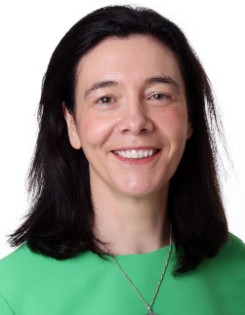
Sandra Collins 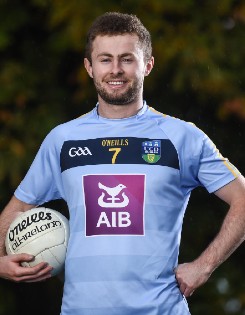
Jack McCaffrey 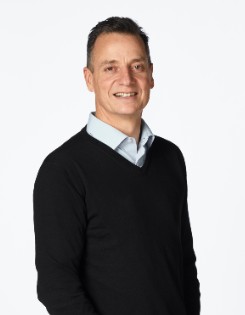
Dalton Philips 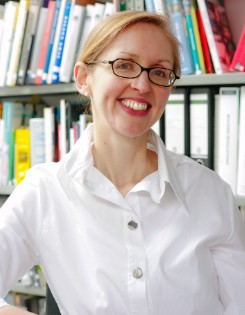
Róisín Heneghan
Sandra Collins, Bsc 1991, Phd 1996
Director, The National Library
UCD Alumni Award – Research, Innovation and Impact. Sandra’s role as Director of the National Library of Ireland (NLI), making available the shared memory of the Irish nation at home and abroad by caring for more than ten million items, was preceded by her role as Director of the Digital Repository of Ireland (DRI) at the Royal Irish Academy, where she established and led an ambitious national research centre developing both policy and e-infrastructure for digital preservation of cultural and social data. What are your memories of UCD? “The freedom of being able to explore your subject, to follow your curiosity, and the feeling of wonder and joy in mathematics which has never left me. There were few female students or lecturers in mathematics at that time: I had to grow my confidence and believe in myself.” What skills for life and career did you pick up at UCD? “Studying mathematics at UCD, I gained great problem-solving and analytical skills. I learned to always look at the data, not to be afraid to ask why, and to always keep learning. I use these skills every day – they’ve travelled with me across disciplines and roles.” What career achievements are you most proud of? “My appointment as Director of the NLI. In this role I’ve had the opportunity to oversee some spectacular acquisitions, a €15m capital redevelopment project, a new Seamus Heaney exhibition and the opening of MoLI, the Museum of Irish literature, in partnership with UCD. It’s been an exciting and hugely fulfilling five years.” Would you change any aspect of your career if you could? “Not a single thing! I never look back or second-guess myself.” What advice would you give to today’s graduates? “Be brave! Follow your heart, don’t be afraid to take risks.”
Dr Jack Mccaffrey, Mb Bch Bao 2018
GAA All-Star and Doctor
UCD Alumni Award – Sport. Jack has been a key part of Dublin’s all-conquering Gaelic football side. At 26, he already has five All-Ireland titles to his name and last year he was on the team that won an unprecedented five titles. He plays club football with Clontarf and is a doctor specialising in paediatric medicine. What are your fondest memories of UCD? “My abiding memories are of playing alongside great friends on various Sigerson Cup teams [the long-running Gaelic football inter-college competition], going away to Africa in 2016 with classmates and working with GOAL and, after my medicine degree, getting a placement at the Mater Hospital.” What life skills did you acquire at University? “Self-directed learning would be a big one and being taught how to communicate effectively. Thanks to UCD, there was a lot of work done on empathy – and meeting people from diverse backgrounds has been invaluable in my career.” What are your post-UCD achievements that you are most proud of? “In football, it’s winning that first All-Ireland title in 2013 [when Dublin beat Mayo] and winning a fifth in 2019. I was very proud to be named Player of the Year for 2015. Medicine-wise, starting my paediatric training has been special.” Any regrets? “I would probably prefer if I hadn’t ruptured my cruciate in 2017 [which happened in the early stages of that year’s All-Ireland final] but, sure, these things happen.” What’s your advice to graduates? “Enjoy your time at UCD – it’s a fantastic spot. Don’t worry too much about staying in touch with everyone; when you meet up again you’ll be chatting away in no time.”
Dalton Philips, Ba 1990
CEO of Dublin Airport Authority
UCD Alumni Award – Arts and Humanities. Dalton is the chief executive of the Dublin Airport Authority (DAA) who kept Irish airports open to ensure that Ireland could receive crucial cargo and the vital medical supplies and PPE it required to assist in the fight against Covid-19. His retailing career began as a store manager in New Zealand and he went on to become chief executive of both Brown Thomas and UK supermarket chain Morrisons. What made UCD special for you? “It was the sense of independence – of choices, living, thinking.” Was there a ‘eureka’ moment at University, when it came to your future direction? “When I first went to UCD I wasn’t sure what I wanted to do, and I studied Geography and Classics. I had a teacher who taught urban geography and he could see I had a real interest in business and I ended up doing my dissertation on retail distribution systems. I brought a lot of that learning to my early career and was fortunate to have a professor who allowed me to think laterally.” You have worked all over the world: wanderlust or necessity? “I wrote 50 CVs coming out of UCD – there were just no jobs. So I just kept moving from country to country with work. I’m happy to be back in Ireland.” What impact is the pandemic having on your work? “Over the course of the pandemic to date, DAA has accumulated losses of nearly €125m (where we lost €1m a day for more than 100 consecutive days). Trying to navigate what’s right for your company and your staff has been a real challenge.” What is your advice for today’s student? “Three things: Find courses that really interest you, work as hard as you can, and build a great variety of work experiences as a graduate.”
Róisín Heneghan, Barch 1987
Co-Founder, Heneghan Peng
UCD Alumni Award – Engineering and Architecture. Róisín is an Irish architect and designer and co-founder of Heneghan Peng Architects. She was shortlisted for Architects’ Journal Woman Architect of the year in 2014. She has won numerous awards and her work includes the Grand Museum of Egypt and the Giants Causeway Visitor Centre. What skills for life and career did you pick up at university? “I think the most profound realisation was that the work done in university is not only beneficial for the student’s personal development but can contribute to a wider social discussion. It is less about individual excellence, and more about a collaborative approach, more about ‘How can all this thinking/ production contribute to a greater good?’.” What career achievements are you most proud of? “Probably the most significant is winning the competition for the Grand Egyptian Museum. At the time it was the largest architectural competition ever held at the time – 1,557 submissions. It felt like a long shot.” Would you change any aspect of your career if you could? “It would have been good to have worked in a non-English speaking environment.” What advice would you give to today’s graduates? “Typically, my advice would be to travel. It’s good to get out of your environment, to have your assumptions questioned – but right now that is difficult. So, a reminder to question continuously: often we are told that something cannot be done and rather than accept that at face value, we find out why. So often, there is an underlying assumption that can actually change and that opens things up. Oh, and learn a language.”
